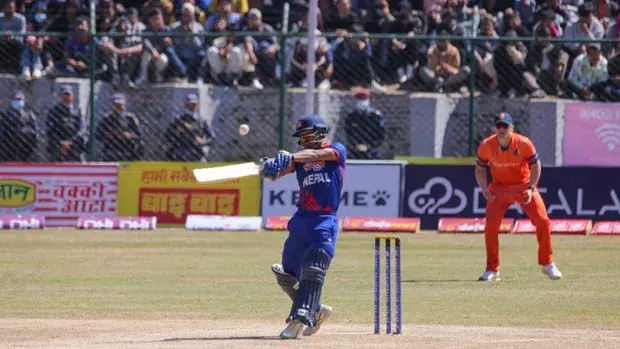Canada vs Nepal: A Riveting Clash in International Cricket
Cricket, a sport once dominated by a few traditional powerhouses, has seen an inspiring surge in competition from emerging nations in recent years. Among these rising cricket nations are Canada and Nepal, two teams with passionate fan bases and promising talent. Their encounters on the cricket field have garnered attention, not just for the level of competition, but also for the dedication both countries have shown in establishing themselves as serious contenders in the international arena.
The recent Canada vs Nepal cricket match exemplified the growing intensity of competition between Associate Nations. Both teams, hungry for recognition and a spot in the higher echelons of world cricket, delivered a contest that will be remembered for its close margins, strategic brilliance, and moments of individual brilliance.
Pre-Match Build-Up
The build-up to the match was filled with anticipation. For Nepal, a cricket-mad nation that sees its players as national heroes, the stakes were high. Cricket is more than just a game in Nepal – it’s a unifying factor for a country that craves international recognition in the sport. Led by their charismatic captain Rohit Paudel, the Nepalese team was ready to prove that their rise in the rankings was no fluke.
Canada, on the other hand, has a rich cricketing history but has struggled to find consistency in recent years. Once regular participants in the ICC World Cup, the Canadian team has been rebuilding, with a new generation of players hoping to bring back the glory days. Under the leadership of Saad bin Zafar, the Canadians were determined to show they can compete with the best.
Both teams entered the match with strong form, having performed admirably in previous encounters in the ongoing Cricket World Cup Qualifiers. With a spot in the next phase of the tournament at stake, this was more than just another match—it was an opportunity to take a significant step toward their dreams of playing on the world stage.
The Match: A Strategic Battle
From the moment the first ball was bowled, it was clear that both teams were determined to leave everything on the field. Nepal won the toss and chose to bat first, looking to set a competitive target. The early overs were tense, with Canada’s fast bowlers extracting some movement from the pitch. However, the Nepalese top-order, led by Kushal Bhurtel and Aasif Sheikh, played with patience and poise, rotating the strike and punishing any loose deliveries.
Nepal’s batting innings was built on partnerships. Bhurtel’s ability to find gaps in the field and Sheikh’s powerful hitting saw Nepal post a steady score in the first half of the innings. However, Canada’s spinners, particularly Nikhil Dutta, turned the tide in the middle overs, taking crucial wickets and putting a lid on Nepal’s scoring rate. Paudel, the captain, played a responsible knock, anchoring the innings while ensuring his team crossed the 250-mark. Nepal finished their innings with a total of 257/8 in their allotted 50 overs.
Canada’s chase was always going to be a challenge, given the pressure of a significant target and Nepal’s potent spin attack. Sandeep Lamichhane, the leg-spin sensation, was expected to be the key bowler for Nepal, and he did not disappoint. His variations and clever use of the crease made life difficult for the Canadian batsmen.
However, Canada was up for the challenge. Their opening batsmen, Navneet Dhaliwal and Ravinderpal Singh, started cautiously but soon found their rhythm. Dhaliwal, in particular, played some exquisite shots, driving Nepal’s pacers through the covers and cutting anything short. Singh, on the other hand, was more aggressive, taking the attack to the bowlers and keeping the scoreboard ticking.
As the match progressed, it became a see-saw battle. Nepal’s bowlers struck at crucial moments, removing Dhaliwal and Singh just as they were getting into their stride. Lamichhane and Aarif Sheikh applied the brakes in the middle overs, making every run hard to come by for Canada.
With Canada needing over 100 runs in the last 15 overs, the game seemed to be slipping away from them. However, a late partnership between Saad bin Zafar and Dillon Heyliger brought Canada back into the contest. The duo mixed aggression with clever running between the wickets, taking calculated risks and keeping the match alive.
The Turning Point
The match’s turning point came in the 47th over when Heyliger was caught on the boundary trying to clear the ropes. His dismissal shifted the momentum back to Nepal, who tightened the screws in the final overs. With Canada needing 20 runs from the last two overs, the pressure was immense.
Nepal’s bowlers held their nerve, delivering yorkers and slower balls that made it nearly impossible for Canada to find the boundary. Saad bin Zafar tried his best to steer his team home, but ultimately, the Canadian side fell short by just 10 runs, finishing their innings at 247/9.
Nepal’s Victory: A Statement Win
Nepal’s victory was more than just two points on the board—it was a statement to the cricketing world. They had shown resilience under pressure and executed their game plan with precision. Sandeep Lamichhane was named the player of the match for his outstanding bowling performance, finishing with figures of 4/35. His ability to take key wickets and control the game’s tempo was instrumental in Nepal’s win.
For Canada, the loss was a bitter pill to swallow, but there were many positives to take from the game. Their batting depth and ability to fight back in tough situations were commendable, and they showed that they are a team capable of competing at the highest level.
The Future for Both Teams
As both teams move forward in the tournament, the stakes will only get higher. Nepal’s win puts them in a strong position to qualify for the next stage, but they will need to maintain their focus and continue performing at this level. For Canada, the road ahead is challenging, but their performance in this match shows that they have the talent and determination to bounce back.
The Canada vs Nepal rivalry is quickly becoming one to watch in Associate cricket. Both teams are on a journey to establish themselves on the global stage, and their matches are a testament to the growth and potential of cricket beyond the traditional powerhouses.
Conclusion
The match between Canada and Nepal was a thrilling contest that showcased the best of Associate cricket. Nepal’s victory was a reward for their consistency and strategic brilliance, while Canada’s fighting spirit made for a competitive and entertaining game. As both teams continue their journey in the tournament, cricket fans can look forward to more exciting clashes between these rising cricketing nations.
This match not only highlighted the progress of Associate teams but also reminded the cricketing world of the talent and passion that exists beyond the Test-playing nations. With performances like this, both Canada and Nepal are well on their way to making a l
asting impact on the global cricketing landscape.






